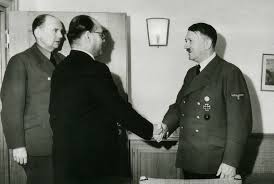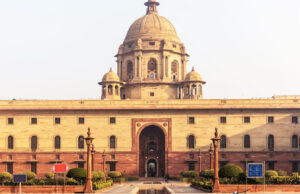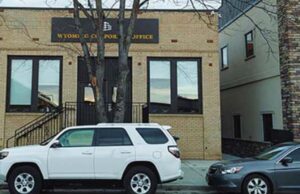BLINKERING NATIONAL VISION

Wild stories surrounding the fate of freedom movement icon Netaji Subhas Chandra Bose have found no trace in the recently declassified papers.
To the disappointment of some, the recent declassification of 100 files related to national icon Netaji Subhas Chandra Bose has not changed the national political discourse. There is practically nothing in these files that has the potential of creating political turmoil. The documents were widely expected to reveal the truth behind the “disappearance” of Bose seven decades ago. But the files released on Netaji’s 119th birth anniversary failed to shed much light on the “mystery” surrounding Netaji’s death in a plane crash in Taiwan on August 18, 1945.
For years, many have propagated rumours that Congress leaders of the time had hidden the truth behind Netaji. When Prime Minister Narendra Modi met a delegation of the Bose family last year and announced his government’s decision to declassify all the files relating to Netaji, certain groups began manufacturing stories. These stories contained inputs, suggesting a blast of such facts that would expose the role of Jawaharlal Nehru and Indira Gandhi. However, these declassified papers present no such clues. Files released in the public arena last Saturday include those which the Prime Minister’s Office had in its possession. Suffice to say, wild stories surrounding Bose’s fate have found no trace in these declassified papers.
When Prime Minister Modi was personally present at the National Archives during the declassification of Netaji files, the walls of a museum in Kolkata were lined with black and white photos of Bose’s parents, of him as a young boy, his May 1942 meeting with Germany’s then leader Adolf Hitler in Berlin and a picture of his German wife, Emilie Schenkl, holding baby Anita. Netaji’s daughter Anita Bose Pfaff, who currently lives in Germany, believes that her father had died in Taipei. In an interview published in an Indian national, a day before declassification, Anita again reiterated her belief.
Declassifying the Netaji files is a welcome step. But the way it has been done and the timing has raised some serious doubts about the intention of the ruling party. A letter, which was allegedly written by Pandit Nehru to the then Prime Minister of England Clement Attlee on December 27, 1945, was given serious publicity before the Netaji files were to be opened for public consumption. The contents of this letter show Nehru referring Bose as “England’s war criminal”. Nehru allegedly told Attlee in this letter “Subhas Chandra Bose, your war criminal, has been allowed to enter Russian territory by Stalin. This is a clear treachery and betrayal of faith by the Russians.” Nehru also advised Attlee to “do what you consider proper and fit”.
In my opinion, the claim of “access to this letter” by certain media organisations is a deliberate controversy that requires a thorough investigation. If there is no mischief behind this letter, why is it not a part of the declassified papers? To get access to such an important document is fine, but why is nobody taking ownership of the letter “written” by no important person than Nehru? The government will be releasing 25 declassified files every month now and the nation should prepare itself to witness similar side shows in the coming months.
Historian Leonard Gordon has been asserting for quite some time that the declassification will not throw up any evidence to the contrary. He had expressed his opinion again and again that “it has been 70 years since Bose died in the crash and I have interviewed people who mattered. People, who know nothing, have no evidence, keep talking and create stories”. Gordon said long back that he would be surprised if the files provide any information disproving that Netaji died in the air crash in Formosa.
India and the world must know the truth about Subhas Chandra Bose. Was he killed in the plane crash? Did he spend his last days in Stalin’s jail? Was he in Mao Tse-tung’s Red China in 1949 and did the Nehru government had specific information about this? Was he in Faizabad of Uttar Pradesh till 1985? After all, what happened to Netaji? We all have the right to know. But while exploring the truth, we must refrain from taking political mileage. The transfer of Rs. 6,000 every year by the Congress party to Bose’s daughter Anita until she got married to an American citizen Martin Pfaff in 1965 and Nehru’s suggestion that 100 pounds be sent every month to Emilie Schenkel, the widow of Netaji “through private channels” in Vienna, should be seen through the right perspective. To distort the very spirit of these gestures is something that exposes the real intention of the forces working against a particular ideology.
After all the pontification and bluster, we will be left with one basic question: would it be in our national interest to allow the Netaji issue to become a part of gutter politics? Deliberately demeaning the grace of the leaders who played a major role in the freedom movement and nation building is a conspiracy to block the national vision. Those who think that tearing someone else down can build them up are bound to prove wrong. They should, at least, spare Bose and not make him a tool of petty politics. Netaji is the “Leader of Nation” even without your granting him this title.









You must be logged in to post a comment Login